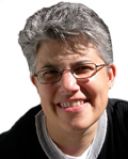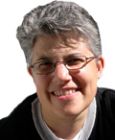Last month I spoke at a conference unlike any I have ever attended before. The Healing Together annual conference organized by An Infinite Mind attracts a little over 200 attendees, roughly one-third of whom have Dissociative Identity Disorder (DID). It was an amazing and powerful experience.

An Infinite Mind (AIM) was started with the goal of creating a resource for people with DID and dispelling common DID misconceptions in order to gain wider understanding and acceptance. As founder Jaime Pollack explains, “We also want to educate as many professionals as we can to stem the tide of misdiagnosis.”
On their website, AIM lists general information about DID and trauma-related dissociative disorders, offers an exhaustive collection of resources on topics like healing from sexual trauma and finding a good therapist, and facilitates peer support and sharing.
With that build-it-and-they-will-come strategy, AIM indeed grew faster than Pollack ever imagined. I understand why. With an estimated 1 to 3% of us having DID, it’s surprisingly hard to find resources for people with DID and those in their life who love and want to support them.
Several years ago, my partner did an exhaustive internet search for practical information about being in a relationship with someone who has DID. After all, there are resources and support groups out there for caregivers and partners of people with dementia and Alzheimer’s, people with chronic pain, people with depression… you name it. She found just one helpful website written by a guy whose wife has DID. Thoughtful and insightful, but just one person’s perspective.
With this exact problem in mind, and with the philosophy that healing happens best when a survivor’s whole family is involved in a supportive way, three years ago AIM launched the first Healing Together Conference.
The gathering is intended to help the partners and family of people with DID to better understand their loved one, and help people with DID better understand the healing process. Pollack also hopes that mental health professionals who attend will “not only understand trauma reactions, but how it affects a family unit.”
For me, and for so many others I talked with at the conference, it was a magical experience to be around people who understood the pain and the power of living with DID. Many of us felt an ease in being with people to whom you did not have to explain yourself. An added benefit was meeting the many loved ones who go to heroic ends to support their partners’, friends’, or sisters’, or brothers’ ability to have full and happy lives despite DID. It reminded me of how lucky we all are to have survived, and of the power of the human spirit.
Maybe I’ll see you at the 2014 Healing Together Conference!
Visit www.olgatrujillo.com to learn more about Olga Trujillo and New Harbinger Publications to find out more about her memoir, The Sum of My Parts: A Survivor Story of Dissociative Identity Disorder.


